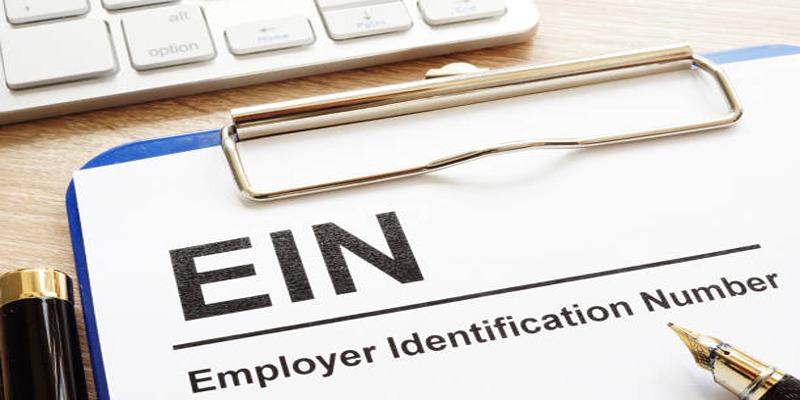Are you looking for an investment that can help with substantial tax savings? Savings bonds can provide beneficial returns not subject to federal income taxes at purchase or while in your possession.
With a bit of preparation now, you can avoid paying taxes on the interest and potentially create a more secure financial future.
This blog post will explore minimizing or eliminating the potential taxation of your savings bond investments.
Understand What Taxes You Must Pay on Savings Bonds
Savings bonds can be a popular investment option for individuals looking for a safe and stable way to save money. However, it's important to understand the tax implications associated with savings bonds to accurately plan your finances.
The two main savings bonds the U.S. Department of the Treasury issued are Series EE and Series I. The tax treatment for both types is similar, with some differences.
Federal income tax must be paid on savings bond interest, but state and local taxes are not. To delay paying taxes on the interest until the bond expires or is redeemed, whichever occurs first, is an option.
This means you can include the interest in your taxable income in the year the bond matures or is cashed out. Alternatively, you can elect to report the interest annually as it accrues. Most people choose to defer the taxes until redemption.
If conditions are met, the interest may be tax-free when using savings bonds for educational expenses. For example, use the bonds to pay for qualified higher education expenses for yourself, your spouse, or a dependent.
You may be eligible for an exclusion from federal income tax on the interest.
It's crucial to consult with a tax professional or financial advisor to understand the specific tax rules and implications based on your circumstances.
They can provide tailored advice and help you make informed decisions regarding your savings, bonds, and tax obligations.
Consider Tax Advantages for Education Savings Bonds

Education savings bonds, specifically Series EE and Series I bonds, offer tax advantages when used to pay for qualified higher education expenses. If you meet the eligibility criteria, the interest earned on these bonds may be tax-free at the federal level.
To qualify for the tax exclusion, you must meet the following conditions:
- You must be at least 24 years old when you purchase the bond.
- The bonds must be issued in your name or jointly with your spouse.
- You must use the bond proceeds to pay for qualified higher education expenses, such as tuition and fees.
- Your modified adjusted gross income (MAGI) must fall within the IRS's specified limits.
It's important to note that while the interest may be exempt from federal income tax, it is still subject to other taxes, such as state and local taxes.
Additionally, the interest will become taxable if you do not use the bond proceeds for qualified education expenses.
Consulting with a tax professional or financial advisor can help you understand the rules and limitations surrounding education savings bonds and maximize their tax advantages.
Utilize Tax-Exempt Interest Earnings from a Savings Bond
Tax-exempt interest earnings from a savings bond can be a valuable resource for individuals looking to minimize their tax liabilities.
Here are a few ways to make the most of tax-exempt interest earnings:
- Education Expenses: As mentioned earlier, if you meet the eligibility criteria, you can use the tax-exempt interest to pay for qualified higher education expenses, such as tuition and fees.
- Retirement Savings: Consider reinvesting the tax-exempt interest earnings into retirement accounts, such as an Individual Retirement Account (IRA) or a 401(k). This allows you to grow your savings tax-free and enjoy a more secure retirement.
- Other Tax-Advantaged Investments: Explore other tax-advantaged investment options, such as health savings accounts (HSAs) or municipal bonds, where tax-exempt interest earnings can be further shielded from taxes.
By strategically utilizing your tax-exempt interest earnings, you can minimize your taxable income, lower your overall tax burden, and maximize the returns on your savings bonds.
It's advisable to consult with a financial advisor or tax professional to determine the most suitable approach based on your specific financial goals and circumstances.
Invest in Series I or Series EE Bonds
Series I or EE bonds can suit individuals seeking safe and reliable investment vehicles.
The U.S. Department of the Treasury issues both types of bonds and offers certain advantages:
- Safety: Savings bonds are considered low-risk investments since they are backed by the U.S. government, making them a secure choice for preserving capital.
- Fixed Interest Rates: Series EE bonds have a fixed interest rate, while Series I bonds have a combined fixed and inflation-adjusted interest rate. This stability can be appealing to individuals seeking predictable returns.
- Tax Advantages: As discussed earlier, savings bonds offer tax advantages, such as tax deferral and tax-exempt interest for qualified education expenses, making them more attractive from a tax perspective.
Before investing, you must evaluate your financial goals, risk tolerance, and time horizon to determine if savings bonds align with your investment strategy. Additionally, consider consulting a financial advisor for personalized guidance based on your circumstances.
Don't Forget to Roll Over Funds Into Another Savings Bond

When your Series I or Series EE bonds reach maturity or stop earning interest, it's important to consider rolling over the funds into another savings bond to continue growing your investment. Rolling over funds into a new bond allows you to maintain the benefits of savings bonds, such as safety and potential tax advantages.
Here are a few reasons to consider rolling over:
- Continuity: Rolling over ensures that your funds remain invested and continue to accrue interest, providing a seamless transition from one bond to another.
- Tax Deferral: By rolling over, you can defer taxes on the interest earnings until the new bond matures or is redeemed.
- Flexibility: Rolling over allows you to adjust your investment strategy by selecting a different bond type or adjusting the investment amount.
Before rolling over, review the current interest rates and terms of the new bond, and consider consulting a financial advisor to ensure that rolling over is in line with your investment goals and risk tolerance.
FAQs
Can I avoid paying taxes on a savings bond?
A savings bond cannot be used to avoid paying taxes. Savings bond interest may be exempt from state and local taxes but is subject to federal income tax.A savings bond cannot be used to avoid paying taxes. Savings bond interest may be exempt from state and local taxes but is subject to federal income tax.
Are there any strategies to minimize taxes on savings bonds?
While you can only partially avoid taxes on savings bonds, you can consider using the bonds for qualified education expenses. If you meet certain income requirements and use the savings bond proceeds for eligible education expenses, you may be able to exclude the interest from federal taxes.
What is the tax implication when redeeming a savings bond?
When you redeem a savings bond, the interest earned is subject to federal income tax in the year of redemption. You may receive a Form 1099-INT from the financial institution where the bond is redeemed, reporting the interest income. Accurate reporting of this income on your tax return is important to avoid penalties or legal issues.
Conclusion
Understanding how taxes affect savings bonds can help you maximize your earnings and use them most effectively. Whether you are looking for a tax-advantaged option for education savings, want to take advantage of tax-exempt interest earnings, or have extra funds to invest in series I or series EE bonds, you mustn't forget to roll over funds into another savings bond to avoid paying taxes on the two and take advantage of gift tax exclusion rules when purchasing savings bonds.




